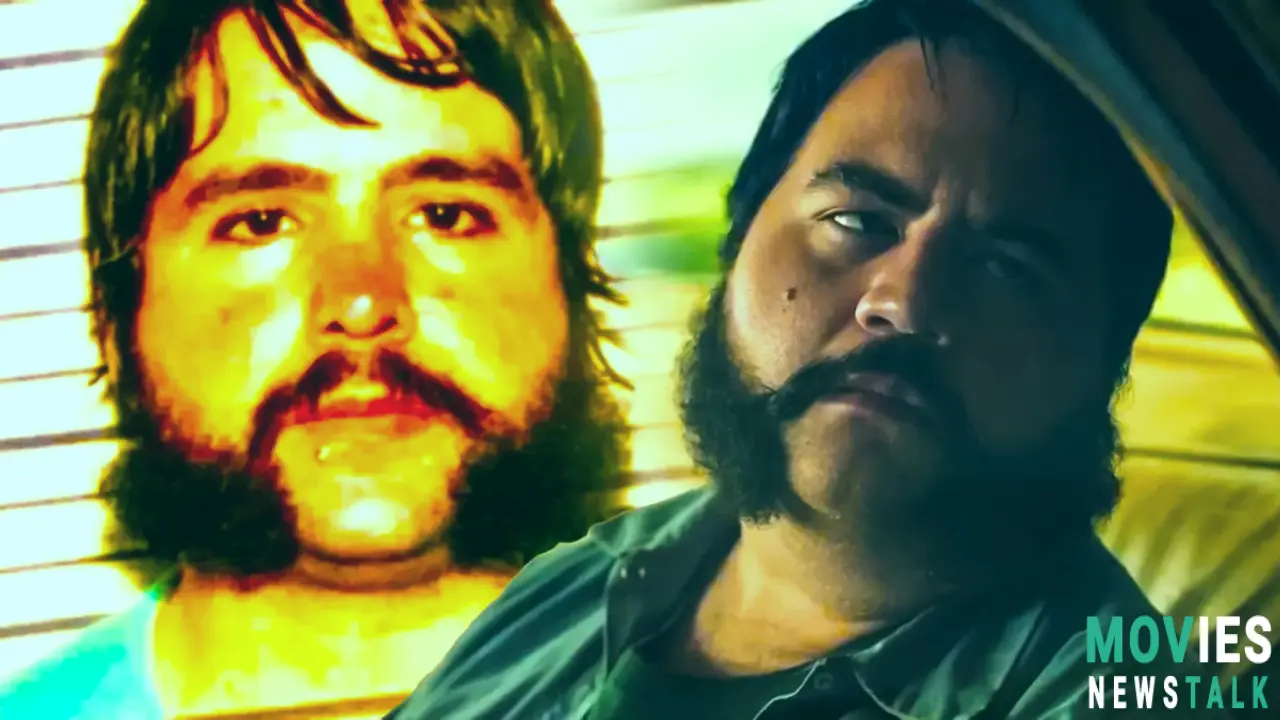Black Bird: The Real Story Behind Larry Hall, and What the Show Leaves Out!
Black Bird: A True Crime Story That Chills You to the Bone (Mostly!)
Apple TV+'s Black Bird is a gripping true crime miniseries about Larry Hall (played brilliantly by Paul Walter Hauser), a convicted serial killer. Based on James Keene's 2010 memoir, it's a tense, darkly fascinating look at the FBI's plan to keepHall locked up forever; that undercover operation, the entire sting which required one deeply unlikely hero to getHallto confess– this is a fascinating, if slightly unsettling look into that truly chilling real-life story; yet a somewhat questionable plot-structure leads to interesting but possibly not entirely fulfilling storytelling that still manages to enthrall! It's got an incredible cast: Taron Egerton, Sepideh Moafi,Greg Kinnear, and the late, greatRay Liotta. It scored amazing reviews (98% on Rotten Tomatoes!), and won aGolden Globeand anEmmy. So why talk about it more? Well because some details get omitted; and its narrative structure makes that story compelling in very specific, unexpected ways!
The series accurately follows many elements; however there is much, much more to the realLarry Hallstory— which helps provide context for some seemingly arbitrary decisions taken throughout the plot. And knowing these missing pieces really puts those events in a dramatically new and surprisingly revealing perspective; particularly when some seemingly random character and plot elements made perfect sense! This exploration explores those differences! Get ready, because there's a ton to cover concerning what the show left out and just why this actually improves those core narratives found in the original series.
The Real Larry Hall: A Life of Crime, Near Misses, and a Shocking Confession
Larry Hall, bornDecember 11, 1962, was teased as a child—low IQ, speech impediment.ARadford Universityresearch paper also notes his low IQ score— making his life in school particularly cruel! In his spare time,Hallhelped dig graves and worked as a janitor. Police suspected him in numerous petty crimes plus potential abductions– those early cases could’ve prevented a great many crimes later in life! Sadly none of those earlier actions created a solid arrest. He then moved across the Midwest, reenactingCivil Warbattles! And it is during this period his killings possibly commenced.
Authorities suspectedHallin the murder of over40young women(between 1980 and 1994)! That is seriously shocking. But he flew under the radar until1993, whenJessica Roach'sremains got found inIndiana. The main detective for this specific case describedHall'sreaction toJessica'sphoto (Gary MillerinCNN) and emphasizes those key nonverbal actions and how much they really did affect his arrest: “He immediately flinched. He turned to his right and he put his hand up over his face like he didn't want to see the picture. He told me he didn't think he'd ever seen that girl.” This was important and had serious impacts upon his entire trial which would follow!
Hallconfessed to killingRoach, mentioned others but immediately recanted everything; causing deep mistrust amongst authorities, makingHall’spotential guilt appear ambiguous in the most unsettling manner. He got convicted of kidnapping—but there’s not quite enough evidence to completely confirm his murder involvement!
The FBI's Desperate Gamble: Enter Jimmy Keene
That appeal almost letHallfree around1996-1997! His lawyers said he was coerced due to mental illness! TheFBIwere worried and devised a plan– gettingJimmy Keene (a convicted drug dealer) to befriendHallin prison! That unlikely agreement? Keenewould get his sentence reduced. He eventually struck up that unlikely friendship— building trust via those amazing conversations withHall, leading to that seriously intense discovery; which really makes that episode intense and thought provoking. The most shocking part? The revelation concerning that map; and the realization that everything he said during those prior discussions had a larger consequence!
This meeting completely demonstrates just whyBlack Bird'sclimax functions; and made all the buildup throughout the earlier episodes utterly compelling.
What Black Bird Leaves Out (and Why It Might Matter)
Black Birdis largely accurate, but there's a ton left out! The show just showsLarrydigging graves.Histwin brother also dug graves which isn't highlighted in the series.The most significant difference involves the ending; and this particular element remains critical to emphasizing the true magnitude and implications ofKeene'ssuccess. The series depictsHallproviding incredible details of various crimes toKeene, then refusing closure, prompting a totally awesome rage-fueled reveal. But the real version of that moment? A little less cinematic.
The series also adds a crucial scene, in which the map's disappearance isn't shown. But this could be improved upon; using details surrounding the maps itself is critically important. That extra storyline helps dramatically change that particular emotional impact by making this into this much larger, much more impactful confrontation betweenHallandKeene.
Where Are They Now? Keene's Redemption and Hall's Ongoing Imprisonment
After his success in exposingHall,Keenewrote his memoir, becoming a motivational speaker; which shows the extent of his later efforts following the success of exposingHall; and lives inIllinois, doing real estate! Hallremains imprisoned, never being granted an appeal thanks to Keene and is housed atFCI Butner Medium IIinNorth Carolina.
Conclusion: The Power (and Limitations) of Storytelling
Black Birdis an unbelievably amazing show. And while it cuts a few real-life elements, making those particular edits completely questionable decisions from the show’s writers. Yet the focus is still upon that intensely engaging and utterly thrilling central theme and reveals all those great moments in that series and their overall message still remains powerful. The focus is completely uponHall'scrimes and this intensely emotional confrontation which culminates in that arrest– that moment still delivers on its dramatic potential which still conveys that terrifying power through those emotionally compelling character decisions and story choices made throughout that series.

